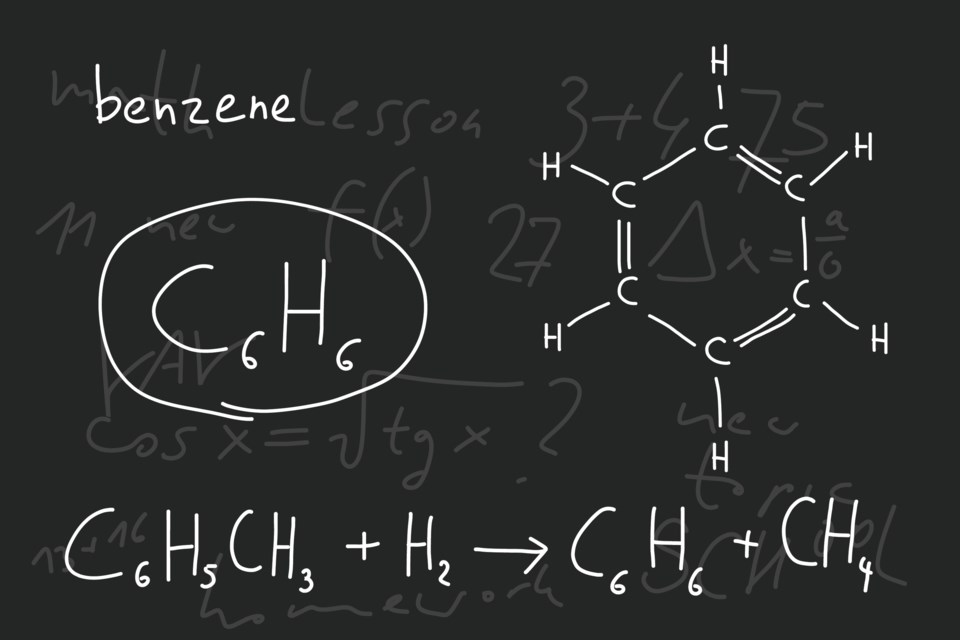Raw well water entering the Pointe des Chenes treatment plant is still laced with benzene, even though an eight-year-old problem with the carcinogen in treated water seems to have been resolved since new filtration equipment was activated over the summer.
A SooToday review of chemical tests from more than 350 water samples taken at the plant since 2009 shows that benzene traces have consistently dropped below detectable levels in treated water since a new granulated activated carbon filtration system was brought online in early July.
Transport Canada's request for proposals for the filters stipulated that they were needed to "to pilot test the treatment of dissolved benzene concentrations" in the water treatment plant.
High benzene levels nonetheless persist in untreated water at the PUC-operated plant, which is supposed to provide drinking water to Lions Club Pointe Des Chenes Campground.
The popular park has been under a continuous drinking water advisory for the past eight years, with ‘do not drink the water’ signs posted at every access point.
The PUC-operated water treatment plant there is fed by two wells, only one of which is currently connected.
Since the new filters were activated the first week of July, benzene was detected in nine of 13 samples of raw well water, in concentrations exceeding the maximum allowed in Ontario drinking water.
As SooToday reported last week, Algoma Public Health believes the benzene originates from fuel ignited during fire suppression exercises at the nearby Sault Ste. Marie Airport.
Transport Canada, which owned and operated the airport from 1961 until 1998, isn't so sure.
"Since the detection of benzene at the campground well, numerous reports prepared by consultants hired by Transport Canada, as well as the City of Sault Ste. Marie, have reached various conclusions about the origin of the benzene in the campground's water, likely due to the site’s complex hydrogeology," Natasha Gauthier, senior media relations advisor at Transport Canada, tells SooToday.
The Algoma Board of Health learned of the problem in a risk management report presented last week by Dr. Alex Hukowich, associate medical officer of health, and Tony Hanlon, Algoma Public Health's interim chief executive officer.
But the documentation presented to board members recorded only two high benzene concentrations in campground drinking water, both in 2008.
SooToday's review found benzene above the legal maximum of five micrograms per litre in 107 of 175 samples of treated water taken from 2009 to 2016.
Not one of the 92 treated-water samples drawn from May 7, 2012 until July 11 of this year met the minimum standard for benzene in Ontario drinking water.
"The benzene issue was something PUC, Algoma Public Healh and the city were well aware of and were monitoring closely," says Giordan Zin, supervisor of customer engagement at PUC Services Inc.
"PUC will continue sampling and testing the water produced there and should zero benzene level continue to be detected, it is anticipated APH could remove the ‘do not drink’ signs as early as next spring," Zin told us.
"In addition to regular monitoring in the vicinity of the firefighting training area at the airport, Transport Canada has been conducting further environmental investigations," added Natasha Gauthier. "The department continues to monitor for benzene and other chemical parameters such as perfluoroalkyl substances at the campground and the firefighting training area."
As a precaution, Transport Canada and Ottawa-based BluMetric Environmental Inc. have been collecting well water samples this month from 66 homes near the Pointe des Chenes campground on Nokomis Beach Road, Des Chenes Drive and Point Des Chenes Crescent.
Samples taken from the same homes in 2008 were all found to comply with provincial drinking water standards, except for one well that had high sodium.
"Transport Canada will determine next steps once findings from this study are received," Gauthier said. "Water quality results for each individual water source will be provided to the owners once the analysis is completed."
